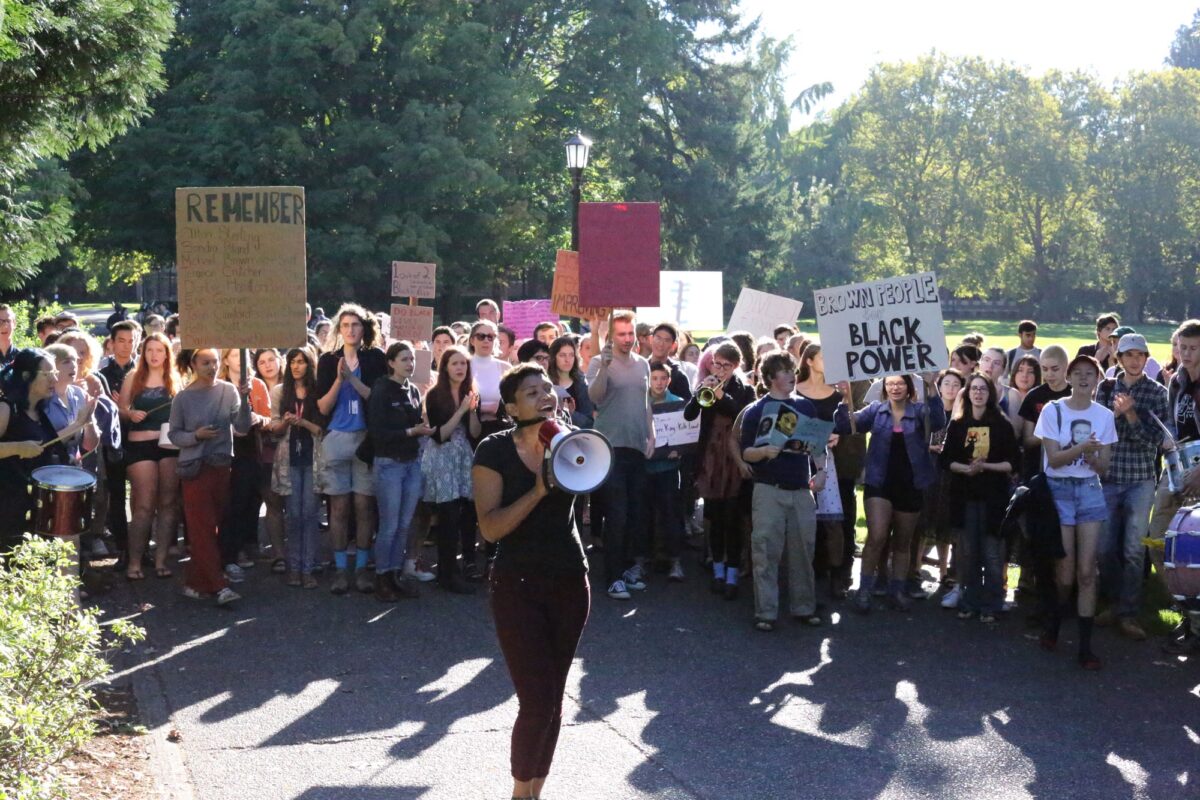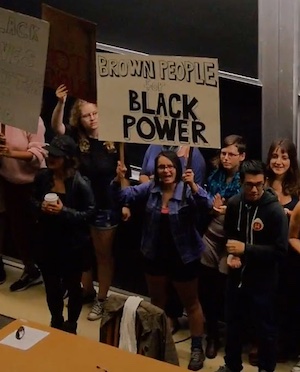Since the summer of 2016, The American Scholar has published the Smarty Pants podcast, featuring weekly interviews on everything from how spaghetti saved the world’s smallest water lily to the biggest questions in philosophy. But this spring, host and Scholar senior editor Stephanie Bastek produced something different: Exploding the Canon, a five-part miniseries on the recent student protests of Reed College’s mandatory freshman humanities course. Bastek, a Reed alumna, tells The Key Reporter how a return to Portland, Oregon, for her 10-year reunion last summer sparked more than two dozen interviews over the course of this nine-month audio project.
____________________
In the fall of 2016, members of the student group Reedies Against Racism began a protest of Reed College’s mandatory freshman course, Humanities 110. I wondered at first whether their anger might be misdirected. Was the curriculum of a humanities course really the problem? Most of the books I remember from Hum 110 are foundational, and I was taught that you have to understand the system in order to change it. But as I heard more from Black students leading the protests, I began to see things differently. These young people were asking brave, provocative questions about the Western canon and raising important concerns about the experience and retention of Black students at Reed.
In 2018—after hours of meetings, months of debate, and two semesters of student protesters silently occupying a campus lecture hall—Reed debuted a revised course that featured entirely new material in the spring semester: goodbye, Rome; hello, Mesoamerica and Harlem. Last June, when I returned to Reed for the first time since my graduation a decade ago, I thought it would be fun to see how, five years after the protests, everything had turned out for the better: the students won their demands, and Reed is doing fine. I set up a handful of interviews with professors, thinking I would release a single extended episode explaining what had happened.

But when I got to campus, I was stunned to find that emotions were still raw. The first professor I sat down with didn’t want to go on the record. Others I spoke to pointed to problems that still plagued the curriculum. An entire department refused to teach the new syllabus. All was not well with Hum 110, which made me wonder just how much of Reed’s culture had really changed. Protests tend to make the news, institutions pledge to change, and then, too often, no one follows up. Was what I’d thought to be a sea change just a ripple?
In conversations with current Reed students, alumni, and faculty, I learned that no one is entirely pleased with the new curriculum. The content of the course might have changed, but something about the way it’s taught bothers students and professors alike—and by some accounts, inadequately addresses race and imperialism, the original focus points of the protests. There are as many viewpoints on Hum 110 as there are professors, but one thing was universal: the prospect of changing the course daunts even the most avid reformers.
Reed College is the setting for this story, but what happened there speaks to much more than the problems facing one liberal arts school. This story is about institutional change writ large: both in the canon, and in the culture. To tell that story, I interviewed dozens of people from Reed’s past and present: among them, administrators who have worked to increase student diversity, professors who started teaching at Reed as far back as the 1960s, core organizers from Reedies Against Racism, and members of the Black Student Union, who, in 1968, waged a similar campaign for the establishment of a Black Studies Program.
In some ways, Reed was ahead of the curve in addressing issues of diversity, equity, inclusion, and racism before 2020, when the George Floyd uprisings led many other institutions to reexamine their own policies. But in other ways, as I learned, Reed lagged behind: the issues it confronted in 2017 were ones many other schools had faced in the 1990s.
Exploding the canon isn’t just about changing the books we read or only reading more Black and brown authors. It’s about changing the content of what we’re reading, yes—but also the lens through which we’re looking at it.
Want to hear the rest of the story? You can find Exploding the Canon at theamericanscholar.org or in the Smarty Pants feed wherever podcasts are found.




